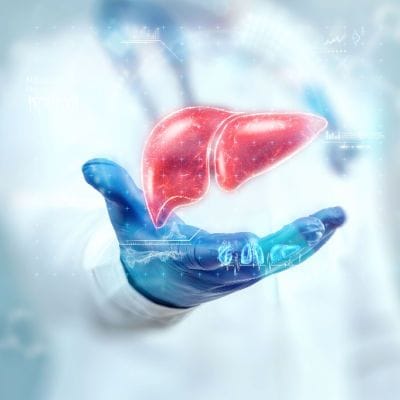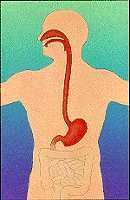 OVERVIEW
OVERVIEW
Cirrhosis is a chronic condition that results in the scarring of your liver. A life-threatening condition, cirrhosis replaces healthy liver cells with scar tissue, reducing its ability to properly work and do its job of:
- filtering toxins from the blood
- making digestive enzymes
- storing sugars and nutrients
- fighting infections
Cirrhosis can occur in two main stages:
- Compensated cirrhosis
People with compensated cirrhosis are asymptomatic. Your liver still functions and is able to replace the damaged cells and scar tissue from cirrhosis with healthy cells. - Decompensated cirrhosis
This occurs after compensated cirrhosis and is when your liver has too much scar tissue. Complications from cirrhosis are common during this stage, including: - Jaundice
- Ascites
- Bleeding varices
- Hepatic encephalopathy (HE)
What are the Symptoms of Cirrhosis?
Cirrhosis symptoms do not make themselves known initially. Depending on the cause of cirrhosis for you, you may not experience symptoms until much later. This can include:
- Fatigue
- Weakness
- Loss of weight
- Decreased appetite
- Nausea
- Swelling in your legs and/or belly
- Bruises
- Jaundice
- Whitening of nails
- Stop in menstruation
Cirrhosis may also affect your brain, causing concentration issues and memory loss.
What are the Causes of Cirrhosis?
Cirrhosis occurs due to liver disease or another liver issue such as inflammation due to a viral infection—hepatitis B and hepatitis C all cause liver disease, which, if left untreated, can turn into cirrhosis down the line.
Cirrhosis can also occur due to:
- Alcohol abuse
- Non-alcoholic fatty liver disease
- Cystic fibrosis
- Too much iron in your body
- Autoimmune diseases
- Medication reactions
- Infections such as syphilis
Treatment for Cirrhosis is Safe When Performed by a Board-Certified Gastroenterologist
You may not feel the symptoms of cirrhosis right away, but scheduling an appointment with a board-certified gastroenterologist can help. If your doctor thinks you may have cirrhosis, you may be required to take the following diagnostic tests to diagnose your condition:
- Blood test to check for
- liver enzymes
- low protein levels
- abnormal blood count
- viral infection (high antibodies)
- Ultrasound or MRI to view your liver
- Biopsy of liver tissue to check the levels of damage
Treatment for cirrhosis depends on the cause of your disease. For some, it can include:
- Alcohol abuse treatment
- Antiviral drugs (if caused due to hepatitis B or C)
- Vaccination for hepatitis B
- NASH treatment for patients with non-alcoholic fatty liver disease
Disclaimer:
The information on this website is provided for educational and information purposes only and is not medical advice. Always consult with a licensed medical provider and follow their recommendations regardless of what you read on this website. If you think you are having a medical emergency, dial 911 or go to the nearest emergency room. Links to other third-party websites are provided for your convenience only. If you decide to access any of the third-party websites, you do so entirely at your own risk and subject to the terms of use for those websites. Neither Arnon Lambroza, M.D., P.C., nor any contributor to this website, makes any representation, express or implied, regarding the information provided on this website or any information you may access on a third-party website using a link. Use of this website does not establish a doctor-patient relationship. If you would like to request an appointment with a health care provider, please call our office at 212-517-7570.

 OVERVIEW
OVERVIEW
